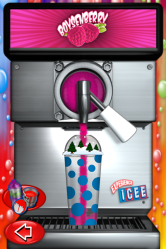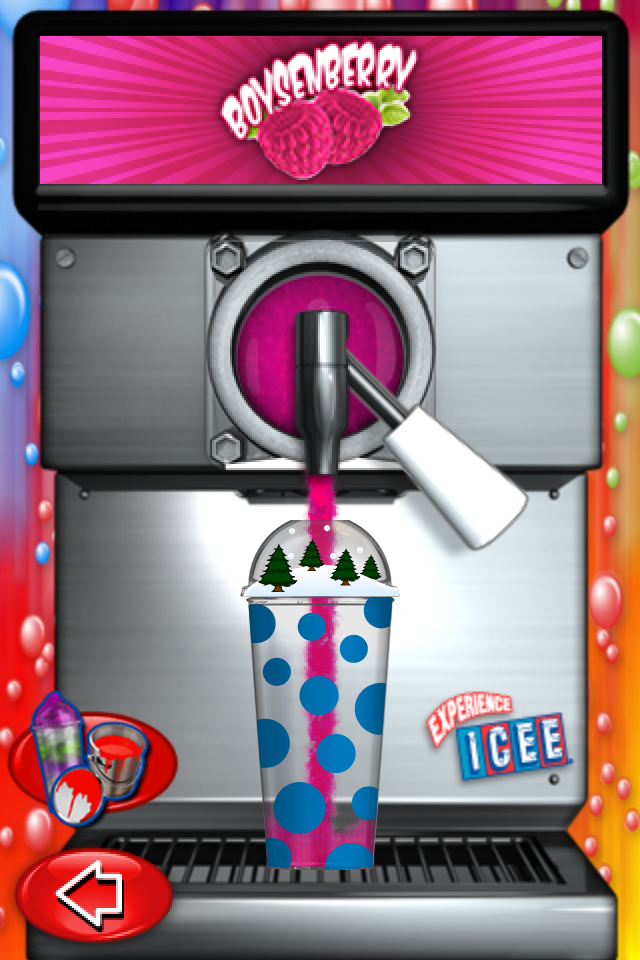Last year, the Federal Trade Commission proposed new guidelines for advertisers marketing food products to children. With the obesity rate for children between ages 6 and 11 at 20 percent, the goal of the proposal is to “encourage stronger and more meaningful self-regulation by the food industry and to support parents’ efforts to get their kids to eat healthier foods.” By limiting kids’ exposure to pitches for deeply unhealthy foods, the intent is that kids will eat fewer of them. Aiming for implementation by 2016, the (voluntary) restrictions [PDF] would apply to TV, radio, print, websites, and “advertising and product placement in movies, videos, and video games.”

A scene from the “Icee Maker” game. (I choose a Christmas-themed lid.)
Unmentioned in the proposal: iPhone apps. Particularly: iPhone apps that are nothing but ads for unhealthy food products targeting kids. From the Wall Street Journal:
Like many children, 4-year-old Anna Woltjen pesters her mother during shopping trips for sweets and snacks. She has a fondness for all kinds of goodies but saves the hard sell for her favorite brands: Cookie Dough Bites, SuperPretzel and Icee frozen treats.
The New Jersey preschooler also asks for her mother’s iPhone to play some of her favorite games, including “Cookie Dough Bites Factory,” “SuperPretzel Factory” and “Icee Maker.”
For the sake of emphasis: 4 years old.
The mobile games demonstrate how new technology is changing U.S. commerce, drawing tighter bonds between marketers and young consumers.
“The apps are certainly targeted at kids,” said Melinda Champion, vice president of marketing at J&J Snack Foods Corp. in New Jersey, which makes SuperPretzel and Icee drinks. “If you get the kids saying, ‘Mom, I would love a SuperPretzel,’ mom will often buy it for them.”
Some apps are already hits. Players love racing against a timer to mix bowls of dough in “SuperPretzel Factory,” which since mid-July has ranked as one of the most popular free children’s games in Apple Inc.’s iPhone App Store. “Icee Maker” has been downloaded from the Apple store more than eight million times since its release last year, the app’s developer said.
The article is riddled with other examples of mobile games. “Jell-O Jiggle It.” “Candy Sports.” “Dum Dum Lick-A-Pop.” Ads that kids will sit and play for hours on end — and that cost companies significantly less than a TV spot. Even if the FTC wanted to crack down on these apps, any proposals would still be voluntary. The agency is prohibited by an act of Congress from limiting food advertising to children.
“The Icee game is definitely a good form of advertising. It definitely works,” said Darren Ortiz of Coaldale, Pa., who was visiting New York’s Times Square recently with his 11-year-old son, Noah. “But like I said, it’s harmless — it’s definitely good that they play that versus some of the other violent videogames that are out there.”
Games celebrating junk food certainly aren’t violent. But given the statistics on childhood obesity, there’s good reason to think that — in rare cases — they may actually be deadly.



